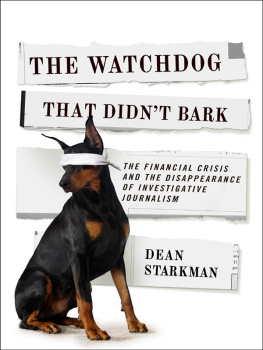CONTENTS
About the Book
At a time when journalism is under attack as never before, Tell Me No Lies could not be more timely. It is a celebration of the very best investigative journalism, and some of the greatest practitioners of the craft: Seymour Hersh on the My Lai massacre; Paul Foot on the Lockerbie cover-up; Wilfred Burchett , the first Westerner to enter Hiroshima following the atomic bombing; Israeli journalist Amira Hass , reporting from the Gaza Strip in the 1990s; Gunter Wallraff , the great German undercover reporter; Jessica Mitford on The American Way of Death; Martha Gelhorn on the liberation of the death camp at Dachau. The book, a selection of articles, broadcasts and books extracts that revealed important and disturbing truths, ranges from across many of the critical events, scandals and struggles of the past fifty years. Along the way it bears witness to epic injustices committed against the peoples of Vietnam, Cambodia, East Timor and Palestine. John Pilger sets each piece of reporting in its context and introduces the collection with a passionate essay arguing that the kind of journalism he celebrates here is being subverted by the very forces that ought to be its enemy. Taken as a whole, the book tells an extraordinary secret history of the modern era. It is also a call to arms to journalists everywhere before it is too late.
About the Author
John Pilger grew up in Sydney, Australia. He has been a war correspondent, author and film-maker. He has twice won British journalisms highest award, that of Journalist of the Year, for his work all over the world, notably in Cambodia (of which an extract is included here) and Vietnam. Among a number of other awards, he has been International Reporter of the Year and winner of the United Nations Association Media Peace Prize. For his broadcasting he has won Frances Reporter Sans Frontires, an American television Academy Award, an Emmy, and the Richard Dimbleby Award, given by the British Academy of Film and Television Arts. In 2003 he received the Sophie Prize for thirty years of exposing deception and improving human rights. He lives in London.
ALSO BY JOHN PILGER
The Last Day
Aftermath: The Struggle of Cambodia and Vietnam (with Anthony Barnett)
The Outsiders (with Michael Coren)
Heroes
A Secret Country
Distant Voices
Hidden Agendas
The New Rulers of the World
To the memory of Paul Foot
Tell Me No Lies
Investigative Journalism and Its Triumphs
Edited by John Pilger

NOTE ON THE TEXT
Some of the extracts and articles collected in this book have been abridged, and notes and references have been omitted. A deletion of text is indicated by a one-line space; a two-line space indicates a section break in the original, or the place where a new chapter originally occurred. Readers who would like to read the full text of an extract, or a book in its entirety, are referred to the bibliographical information in the Sources.
Unless marked Authors footnote, the footnotes have been added by the editor to provide the reader with explanatory detail or background information.
INTRODUCTION
John Pilger
Disobedience, in the eyes of anyone who has read history, is mans original virtue. Oscar Wilde
Printed on the back of this book is a favourite quotation of mine by the American journalist T. D. Allman: Genuinely objective journalism, he wrote, is journalism that not only gets the facts right, it gets the meaning of events right. It is compelling not only today, but stands the test of time. It is validated not only by reliable sources, but by the unfolding of history. It is journalism that ten, twenty, fifty years after the fact still holds up a true and intelligent mirror to events.
Allman wrote that as a tribute to Wilfred Burchett, whose extraordinary and often embattled career included what has been described as the scoop of the century. While hundreds of journalists embedded with the Allied occupation forces in Japan in 1945 were shepherded to the largely theatrical surrender ceremony, Burchett slipped the leash, as he put it, and set out on a perilous journey to a place now engraved in the human consciousness: Hiroshima. He was the first Western journalist to enter Hiroshima after the atomic bombing, and his front-page report in the London Daily Express carried the prophetic headline, I write this as a warning to the world.
The warning was about radiation poisoning, whose existence was denied by the occupation authorities. Burchett was denounced, with other journalists joining in the orchestrated propaganda and attacks on him. Independently and courageously, he had exposed the full horror of nuclear warfare; and his facts were validated, as T. D. Allman wrote when Burchett died in 1983, by the unfolding of history. His dispatch is reprinted on page 10.
Allmans tribute can be applied to all those whose work is collected in these pages. Selecting them has been an immense privilege for me. The opportunity to honour the forgotten work of journalists of the calibre of Wilfred Burchett, Martha Gellhorn, James Cameron and Edward R. Murrow is also a reminder that one of the noblest human struggles is against power and its grip on historical memory. Burchett on the meaning of Hiroshima, Gellhorn on genocide, Cameron on resistance: each work, together with that of contemporaries such as Paul Foot, Robert Fisk, Linda Melvern and Seumas Milne, not only keeps the record straight but holds those in power to account. This is journalisms paramount role.
The reference to investigative journalism in the title needs explaining, even redefining. T. D. Allmans description is a sure starting point, rescuing objectivity from its common abuse as a cover for official lies. The term, investigative journalism, did not exist when I began my career; it became fashionable in the 1960s and 1970s and especially when Bob Woodward and Carl Bernstein exposed the Watergate scandal. In making my selection, I have applied a broader definition than detective work and included journalism that bears witness and investigates ideas. Thus, Phillip Knightleys account of the London Sunday Times s tortuous disclosure of the scandal of the drug thalidomide, which caused terrible foetal malformations in the 1950s and 1960s, sits easily alongside historian, poet and satirist Eduardo Galeanos expos of the propaganda of war, consumerism and mass impoverishment.
I have preferred the great mavericks, whose work continues to inspire, over those perhaps more celebrated and whose inclusion would merely commemorate their fame. Although Seymour Hershs expos of the My Lai massacre in Vietnam helped make his name, it is his consistent work over forty years, calling power to account, that has earned his place in these pages.
I hasten to say that, in making this selection (with 1945 as an arbitrary starting year), I have had to leave out some remarkable work rather than further reduce the length of each essay. I apologise to those who could rightly expect to see their names included here. In my original list was I. F. Stones investigation into the hidden history of the Korean War (1952), which demonstrates that the fraudulent reasons for the Anglo-American attack on Iraq in 2003 were not the first of their kind. Inexplicably, Jeremy Stone refused to allow the inclusion of this landmark work of his father Izzy, who fought censorship all his life.
The best investigations are not always the work of journalists. In the section on Iraq, Joy Gordon, an academic, contributes an essay () that draws on her study of a tragedy many journalists avoided and still suppress: the effects of the United Nations sanctions imposed on Iraq between 1990 and 2003. This medieval-style siege cost the lives of up to a million people, many of them young children. Compared with the misdeeds of Saddam Hussein, whose devilry was, for a time, a headline a day, this epic crime of our side is little known.
Next page
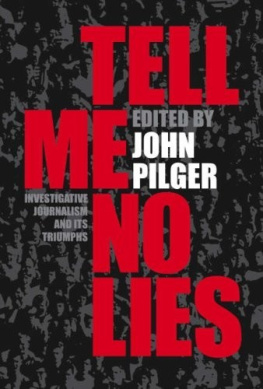
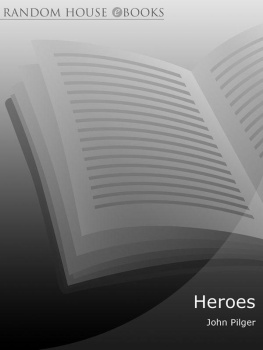

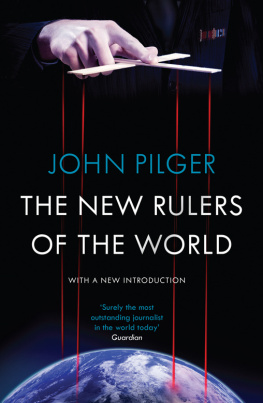

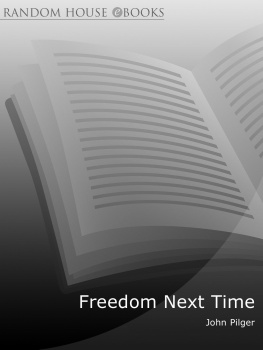
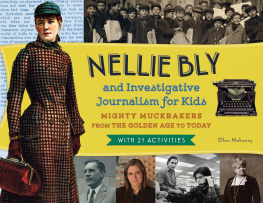

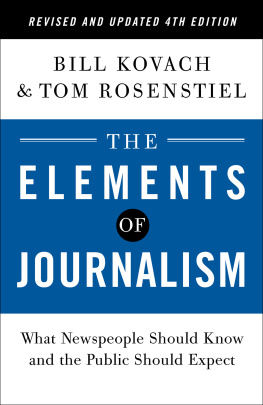
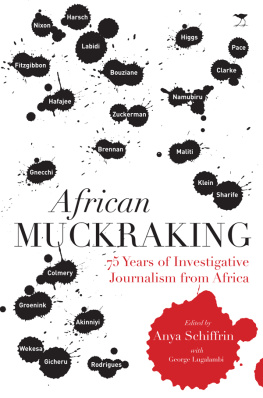
![John Pilger [John Pilger] - Hidden Agendas](/uploads/posts/book/142127/thumbs/john-pilger-john-pilger-hidden-agendas.jpg)
